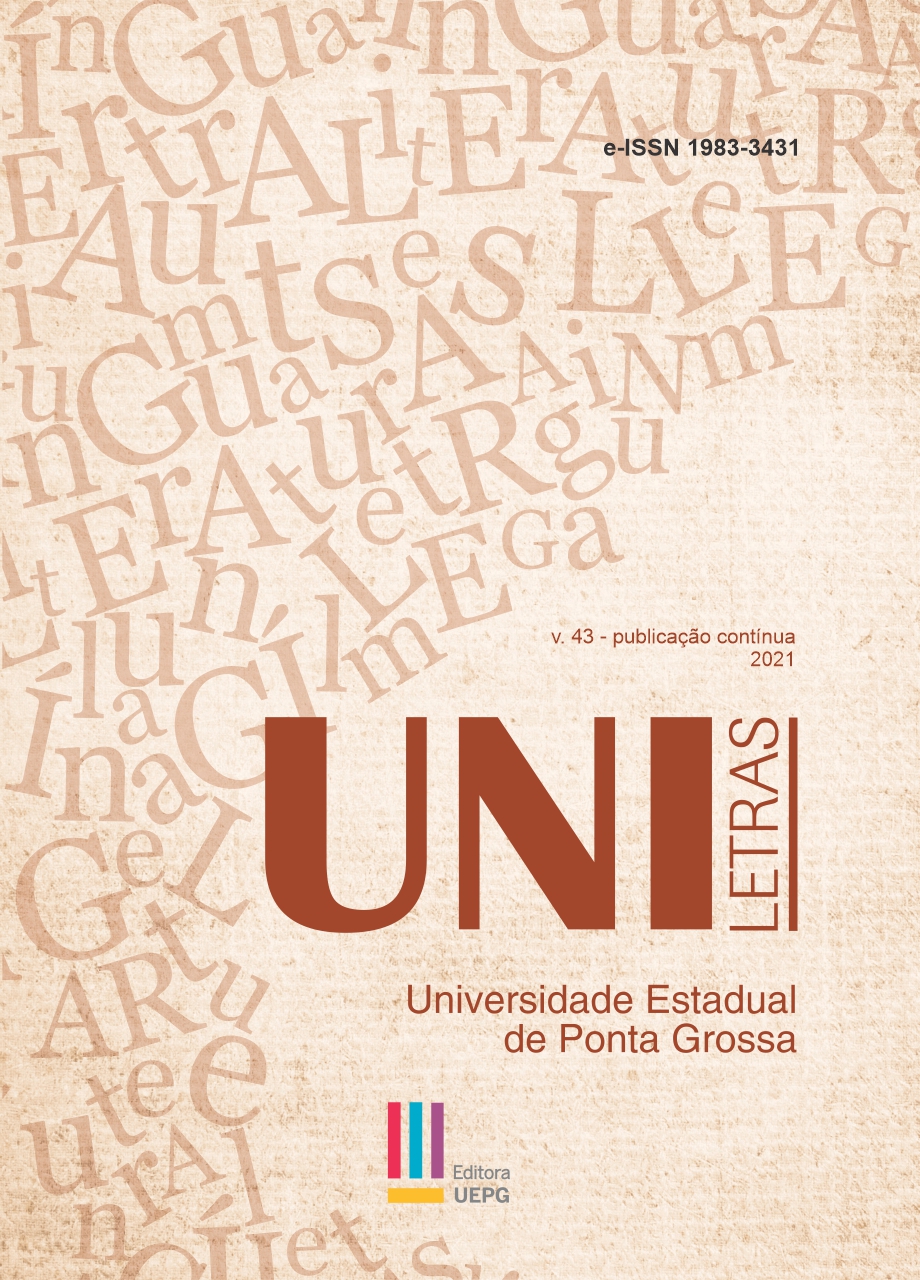MODAL MEANING AND PARENTHETIC USE: AN INVESTIGATION OF COGNITIVE VERBS IN PORTUGUESE
Abstract
This article analyses the nuances of the cognitive verbs from Portuguese, in order to identify which meanings provide their works in the field of cognition and in the field of epistemic modality. Based on Casseb-Galvão (1999), Traugott and Dasher (2001) and Barbosa-Santos (2019), it can be noted that, from being coders of mental processes, the verbs acreditar, pensar, imaginar and calcular start to occur as modalizers, with a visible salience of their epistemic sense. To collect and analyze these verbs, it was chose occurrences between the XVIII to XX centuries, in the Corpus do Português. For the collection and analysis, occurrences between the 18th and 20th centuries were chosen, in the Corpus do Português. The choice is justified by the fact that it comprises a wide range of language constructions between the centuries investigated. Through the occurrences, it was seen that, although such verbs express opinion, there is a continnum of more and less specific nunces, which allow us to define them as more or less fluid.
Downloads
Downloads
Published
Issue
Section
License
Authors that publish in the journal agree with the following terms:
a) The authors keep the copyright and grant to the journal the rights of the first publication, with the work simultaneously being licensed under the Creative Commons Attribution License that allows the sharing of the work with the recognition both of the authorship and the initial publication in this journal.
b) This journal provides immediate public access to all of its content, following the principle that making scientific knowledge freely available to the public provides greater worldwide democratization of knowledge. For more information about this approach, visit Public Knowledge Project, a Project that developed this system to improve the academic and public quality of research, distributing OJS as well as other softwares to support the publication system to public/open access to academic sources. Names and e-mail addresses in this website will be used exclusively for this journal purposes, not being available for other ends.

This work is licensed under a Creative Commons Attribution 4.0 International License.





